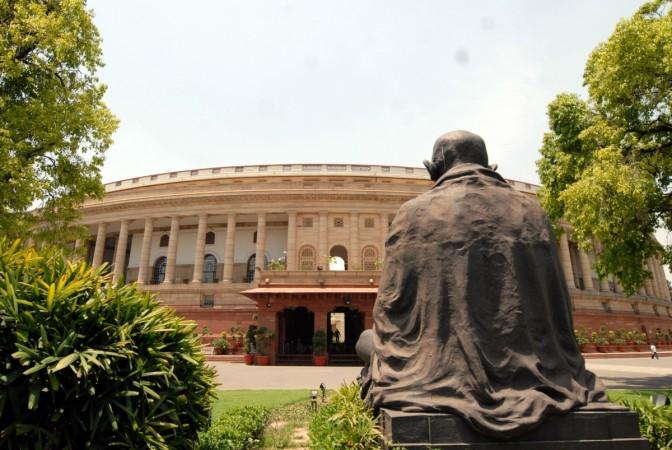
With most of the hitherto political opponents, including the Congress, coming on board, the BJP-led NDA government will be tabling the Goods and Services Tax (GST) Bill next week in the Rajya Sabha, where the most significant indirect tax reform legislation needs to be cleared.
The GST Bill requires Constitutional amendment and therefore, has to be passed with 2/3rds majority by the Upper House where the ruling coalition does not have even a simple majority.
"Almost all political parties are on board," Mukhtar Naqvi, minister of state for parliamentary affairs, said on Friday in New Delhi.
With the Congress giving up its demand on capping the revenue neutral rate (RNR) at 18 percent and the government agreeing to the principal opposition party's insistence on setting up an independent mechanism to deal with disputes arising out of the implementation of the Bill, there is optimism that the legislation would be easily cleared by members in the Rajya Sabha. The Bill was passed by the Lok Sabha last year.
The Congress had insisted on an independent dispute resolution body headed by a High Court judge, while the Modi government had proposed the GST Council to serve the purpose. Senior Congress leader Anand Sharma said the government indicated that the Centre had given a "commitment" on the dispute resolution body's composition; reports suggested that the GST Council will have sufficient representation by the states also to safeguard their interests.
The government did its bit on Wednesday by dropping the 1 percent additional tax on inter-state sales.
Once that is done, the next steps involve ratification of the Bill by at least 15 of the states.
The Bill that will be presented in the Rajya Sabha will also have provisions to compensate states for losses arising out of implementation of the Bill in the first five years.
Highlights of the Constitution (122nd Amendment) Bill, 2014 (according to PRS Legislative Research)
- The Bill amends the Constitution to introduce the goods and services tax (GST).
- Parliament and state legislatures will have concurrent powers to make laws on GST. Only the centre may levy an integrated GST (IGST) on the interstate supply of goods and services, and imports.
- Alcohol for human consumption has been exempted from the purview of GST. GST will apply to five petroleum products at a later date.
- The GST Council will recommend rates of tax, period of levy of additional tax, principles of supply, special provisions to certain states etc. The GST Council will consist of the Union Finance Minister, Union Minister of State for Revenue, and state Finance Ministers.
- The Bill empowers the centre to impose an additional tax of up to 1%, on the inter-state supply of goods for two years or more. This tax will accrue to states from where the supply originates.
- Parliament may, by law, provide compensation to states for any loss of revenue from the introduction of GST, up to a five year period.

















